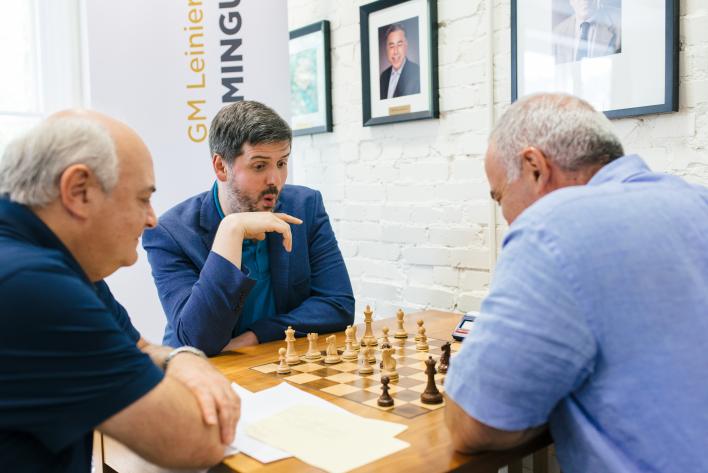
By Elshan Moradiabadi
One of the main concerns of professionals in competitive fields is the amount of popularity of their profession. While some sports and activities are well-established, other sports have to reform or reshape their market base. Thanks to Internet and its global impact, millions of people are involved with chess on a daily basis. However, many still have worries about the future of chess by addressing the constant growth of theoretical knowledge and depth of computer analysis, beyond human heuristics. A lot of chess players and aficionados are concerned that the role of their ‘thinking process’ is becoming irrelevant in the course of a game, as they need to remember more moves and less ideas. While the worry about ‘exhaustive’ nature of chess was raised a long time ago (in fact, in early ‘20s, by then world champion Jose Raul Capablanca), competitive chess does still produce high quality games where the clash of minds lead to tantalizing tactics, positional masterpieces, and artful endgames.
Nevertheless, it is not a trivial matter to think about the future of chess with respect to its attractiveness to the audience: speed chess, and particularly blitz, is extremely popular these days. Even a simple friendly game of GM Hikaru Nakamura, the current U.S. Champion and a legendary figure in online chess, would be observed by thousands live on chess.com. For those who are less interested in a maybe non-significant novelty in Berlin defense on move thirty eight, Fischer random chess is a remedy where they can get their adrenaline high right off the bat.
Recently, FIDE and frchess.com announced the rules and regulations for the first World Fischer Random Chess Championship for 2019. While many criticisms and praise have come along ever since the announcement has been made, I believe that diversifying your market and asset (here time, the board, and the pieces) is of utmost importance for the future of the ‘royal game.’ While I firmly believe that the classical chess is far from being exhausted and saturated by theory, it is good to see fresh new ideas happening in the chess world, where the online community offer a much bigger market to it.


